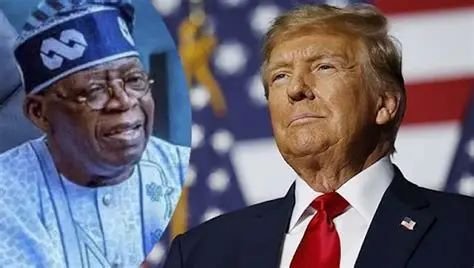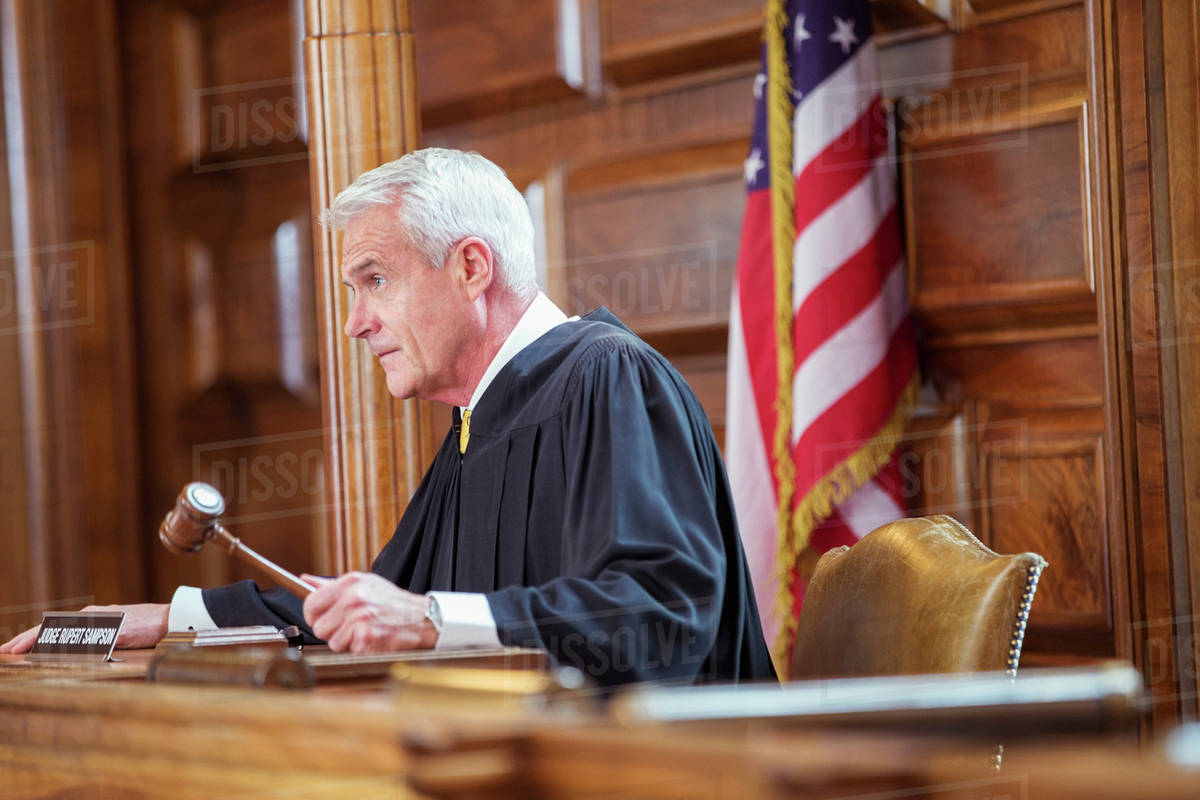There has been sharp and divided reaction by Nigerians after U.S. President Donald Trump threatened to launch military strikes against terrorists in Nigeria if the government fails to stop what he called a “genocide against Christians.”
Political leaders, scholars, and civil groups have called for caution — several rejecting what they described as a one-sided narrative about Nigeria’s struggles with terrorism.
Anambra State Governor, Prof. Chukwuma Soludo, said the U.S. was oversimplifying a complex situation.
Speaking during a live media chat broadcast on ARISE News and several other national TV stations, Soludo said any U.S. action in Nigeria “must be on the invitation of the Nigerian government with due respect for international laws.”
He explained that although America has a right to express an opinion about global issues, it must do so within the boundaries of law and diplomacy.
“As a country, America has its own right to have views about what is going on elsewhere. But when it comes to what it does, I am sure it must act within the realm of international law,” he said.
Soludo dismissed the narrative of Christian persecution, arguing that many killings in the South-east are internal conflicts, not religious ones.
“People are killing themselves, Christians killing Christians. Those in the bushes are Emmanuel, Peter, John — all Christian names. They have maimed and killed thousands of our youths. It has nothing to do with religion,” he added.
The governor said if Nigeria ever sought help, it should be limited to military support and technology — not foreign boots on the ground.
He drew a sharp comparison with U.S. domestic affairs: “When policemen were killing blacks in America during the #BlackLivesMatter protests, should Africa have threatened to invade the U.S.? I am not sure.”
Soludo called for what he termed a “deeper conversation.” He said Nigeria’s government is doing a lot to safeguard the country, adding that the nation’s diversity demands dialogue, not division.
“In this part of the country, we are 95% Christian. The people in the bushes killing people bear Christian names. Nigeria will overcome, and it will end in conversation,” he said.
Kwankwaso Calls for Diplomacy, Not Confrontation
Former Kano State Governor and 2023 NNPP presidential candidate, Rabiu Musa Kwankwaso, called for calm diplomacy between Nigeria and the United States.
Reacting on his verified X handle, he said the rising tension should be managed through dialogue, not threats.
“I have noted with increasing concern the pronouncements by President Donald Trump following his designation of Nigeria as a ‘country of particular concern,’” he wrote.
Kwankwaso said Nigeria’s insecurity cuts across ethnic, political, and religious lines.
“Our country faces threats from outlaws across the country. The insecurity we face does not distinguish religion, ethnicity, or politics,” he said.
He urged the U.S. to replace threats with constructive partnership.
“The United States should assist Nigerian authorities with cutting-edge technology to tackle these problems, rather than posing threats that could further polarize our country,” he added.
The former governor also advised Nigeria to appoint special envoys and permanent ambassadors to engage global partners and protect the nation’s image abroad.
“This is an important moment where we should emphasize unity of belonging over division,” he said.
Sam Amadi: “Trump Is Acting Within U.S. Law, Not UN Power”
Dr. Sam Amadi, Director of the Abuja School of Social and Political Thought, said Trump’s threat stems from U.S. domestic law, not any international mandate.
Speaking also on ARISE News, he explained that under the International Religious Freedom Act of 1993, the U.S. identifies and sanctions countries accused of violating religious freedom.
“Trump is not exercising United Nations power. He’s acting under American law. It’s America’s domestic prerogative — just as Nigeria could decide to withhold aid from any country that violates good governance,” he said.
Amadi said while the move might seem overreaching, it reflects how superpowers behave.
“America is behaving as any superpower would. If China or Nigeria had America’s power, they would overreach too. It’s the politics of dominance,” he said.
However, he faulted Nigeria’s leaders for failing to uphold the Constitution’s secular principles.
“We don’t need Trump to tell us Nigeria has violated its own Constitution. Since 2000, when Zamfara introduced Sharia criminal law, we effectively created 12 Islamic republics within a secular state. That is unconstitutional,” he said.
The scholar said religion has been misused on both sides.
“When you use state power to make Sharia criminal law or execute someone for blasphemy, you have violated Section 10 of the Constitution,” he noted. “Nigeria’s crisis is not about Trump — it’s about leadership failure.”
Amadi warned that dependence on foreign aid has weakened Nigeria’s sovereignty. “If you can’t protect your citizens, you trigger others’ right to intervene under the principle of responsibility to protect,” he said.
He called for constitutional reforms and stronger institutions to restore sovereignty and equality among all faiths.
“Not Muslims vs Christians” — Ashraf Sanusi Cautions Nigerians
Ashraf Sanusi, son of the Emir of Kano, cautioned Nigerians not to fall into the trap of religious arguments.
In a social media post, he said both Muslims and Christians have suffered from terrorism. “Let’s not get drawn into endless and pointless arguments about who is being killed. Muslims have seen Muslims killed, and Christians have seen Christians killed,” he wrote.
“Each side has a right to anger and grief, but in that grief, it’s easy to turn away from others’ pain. It’s not Islam vs Christianity — it’s sane people vs terrorists.”
Youth Council Rejects “Old CIA Tactics”
The Vice President of the National Youth Council of Nigeria (NYCN), Ojo Bright Eniafe, condemned Trump’s comments as reckless.
He warned against foreign interference disguised as humanitarian rescue. “It is absolutely ridiculous to suggest military intervention in Nigeria,” he said.
He recalled the chaos that followed U.S. military interventions in Libya and Afghanistan, saying such “help” leaves countries in ruins.
“The world is painfully aware of the chaos that ensued after U.S. actions. Nigeria cannot be helped through bombs or boots,” Eniafe stated.
He accused Trump of pursuing personal interests, not global peace.
“Labeling Nigeria a terrorist state based on isolated incidents is laughable and ignorant,” he said, noting that the U.S. also struggles with gun violence and civil unrest.
Eniafe urged the Nigerian government to summon the U.S. Ambassador to clarify Trump’s threats.
He said Nigeria’s partnerships with blocs like BRICS are part of its right to chart its own development path.
“I stand with the people and government of Nigeria,” he declared. “The NYCN will defend national integrity against external threats.”
Presidency: Tinubu Had Warned the Military to “Smash the New Snakes”
Amid the uproar, presidential aide Bayo Onanuga said President Bola Tinubu had already taken firm steps.
He recalled that during the inauguration of Nigeria’s new service chiefs, Tinubu warned them to act fast.
“No more excuses,” Tinubu said in the address. “Security threats are constantly evolving. We must smash the new snakes right in the head.”
The president urged the armed forces to deploy technology and courage in tackling rising threats in the North-Central, North-West, and South.
“Nigerians expect results, not excuses. Let’s stay ahead of those who seek to threaten our peace,” he said. “I promise to provide all the support you need to get the job done.”
Between Power and Sovereignty
Trump’s declaration of Nigeria as a “country of particular concern” has generated the sharpest buzz in diplomatic relations between both countries in years.
Analysts say while America is legally empowered under its domestic law to act against countries accused of religious persecution, Nigeria appears to suspect other geopolitical motivations.
But the deeper question is: how should a sovereign nation react when a superpower threatens intervention in the name of human rights? Could Trump’s rhetoric be an attempt to reassert influence in Africa amid Nigeria’s growing ties with China and Russia? Or is it a genuine moral response to disturbing reports from conflict zones of Nigeria?
Rate, Like 👍, Comment 💬, Share this article, Follow us on our social media handles, and Submit your own story to get featured and earn rewards!








